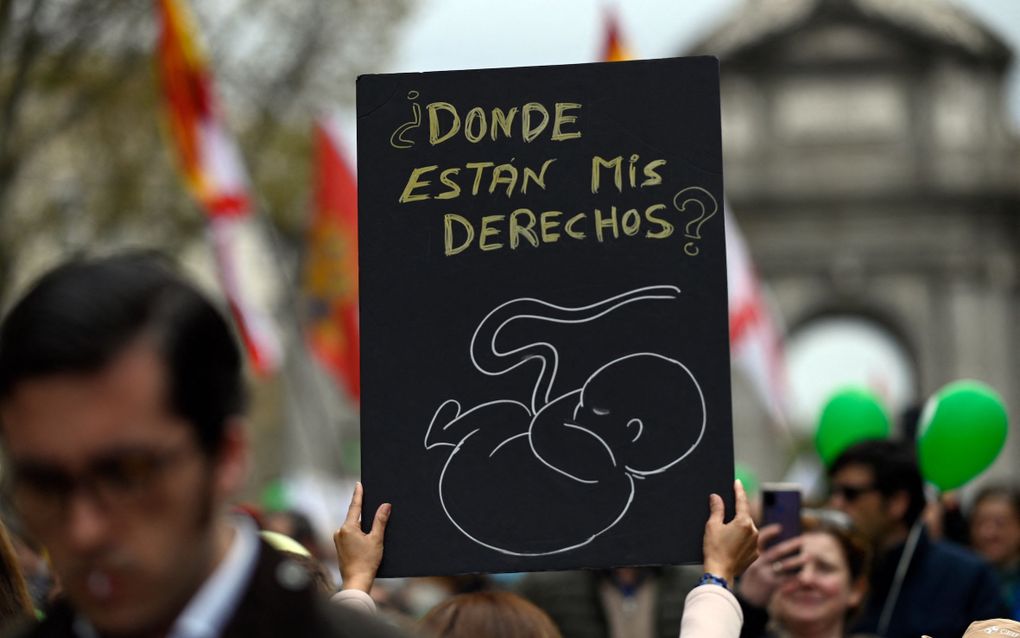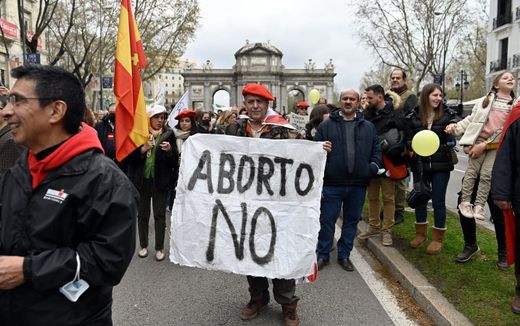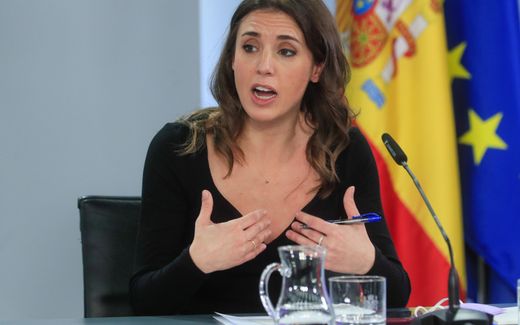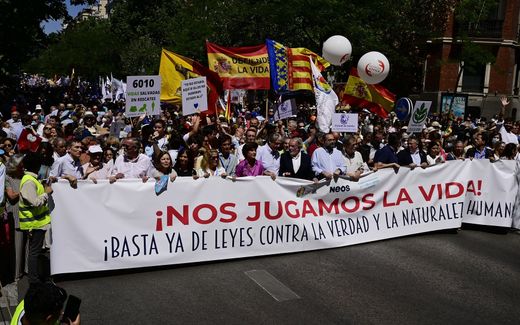Spanish government presents new abortion bill to Parliament

A demonstration for the right of life in Spain. Photo AFP, Oscar del Pozo
Southern Europe
The Spanish government cabinet is going on with the proposal to give 16-year-olds access to abortion without parental consent. Another part of the bill is the register in which health personnel must declare whether they are willing to execute abortion.
Also, the three days of reflection time will disappear from the legislation. "The state will not doubt the decision of the women", Irene Montero, the Minister of Equality, said this week, according to a report by Protestante Digital.
The regulation aims to strengthen "women's sexual rights", said Montero. The other pillar of the bill is greater access to the voluntary interruption of pregnancy. "The right to decide on our own body is the gateway to exercising many other rights," she stressed.
The executive expects the regulations to come into force at the end of the year "without major changes".
Menstrual health
Another part of the proposal is devoted to menstrual health. It is proposed that doctors be able to take three days off for painful menses. In addition, job losses are also foreseen for women who abort, the obligation for educational centres to teach "sexual education at all stages" and to have products available for menstruation, or free access to them in centres of social services for women who are at risk of exclusion or in prison.
Something that Montero has not commented on this time is the issue of surrogacy, another critical point of the law. The norm anticipates considering this practice as a form of violence against women. This is a crucial point in protecting women and children. The rule prohibits the advertising of intermediary agencies and will establish that the courts may prosecute couples who go abroad to access this practice, which is illegal in Spain.
Critical analysis
The Spanish Evangelical Alliance published a document in June in which it analyses the new abortion law drawn up by the government. The entity considers that "a good part of its articles refers to issues that are not rights, in the same way as abortion, which is nothing more than a dramatic way out of a situation that was never wanted: unwanted pregnancy."
They also point out that "numerous ideological tics run through the text" of the norm and point out that "an organic law like this, which deals with transcendental issues, naturally requires a broad consensus free of those concessions to ideology."

The Federation of Evangelical Religious Entities of Spain (Ferede) has also presented a critical report against the abortion law and the Trans Law (already approved ). Ferede describes these regulations as "legislative initiatives that may constitute a violation of the right to religious freedom and freedom of conscience."
Specifically, on the abortion law, the Federation stresses that it is "serious" to allow minors to abort without parental consent. It raises doubts about creating a registry of conscientious objectors, assuring that it can become the object of employment discrimination.
Also, the organisation One of Us complaints about removing the parental consent. "This legal imposition abandons our daughters and eliminates the duties and rights of parents in exercising their parental authority. Of course, it supposes a failure in parents' educational and accompanying role in society."
Related Articles






